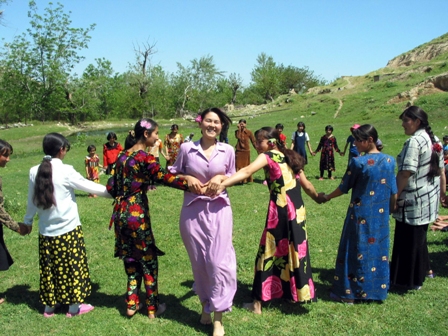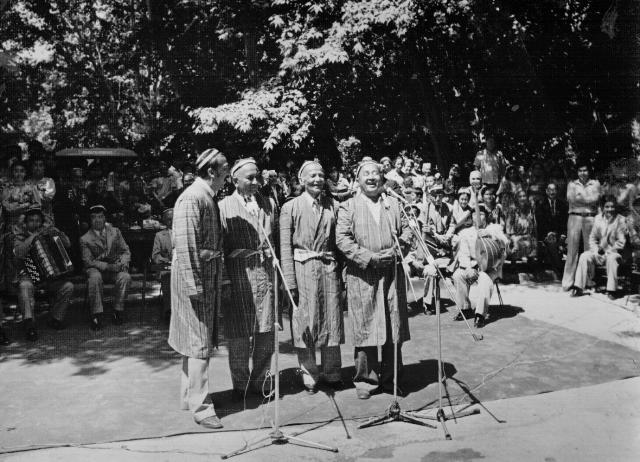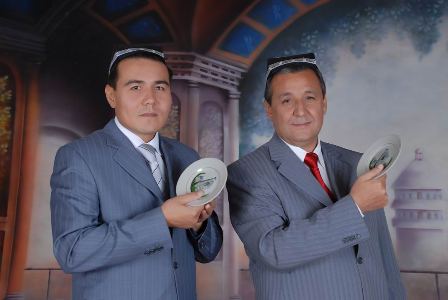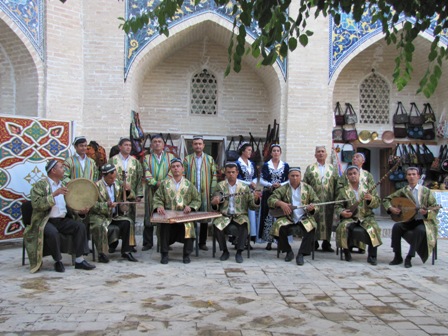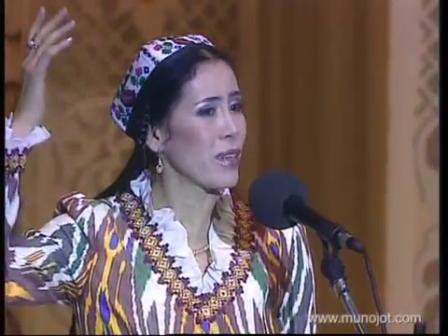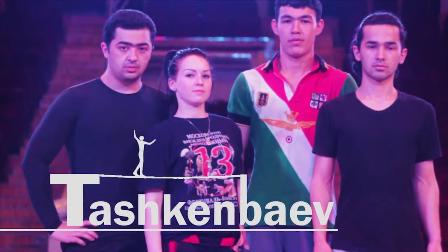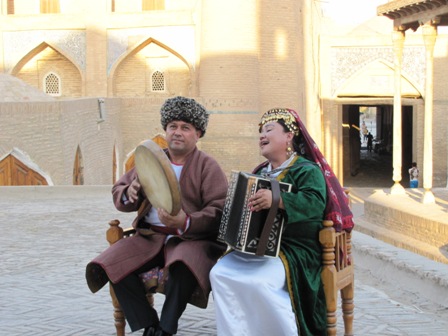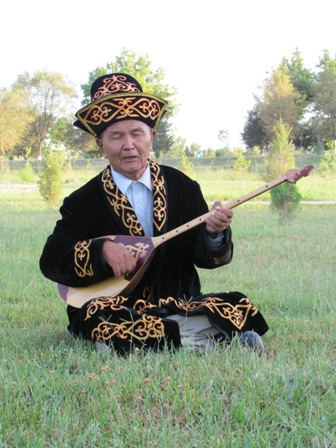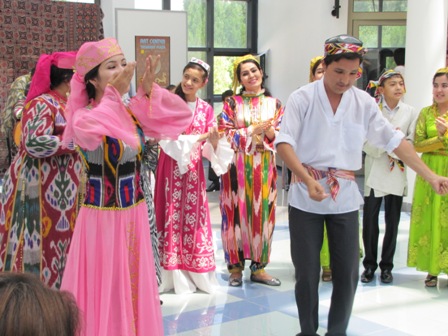Ushshoq
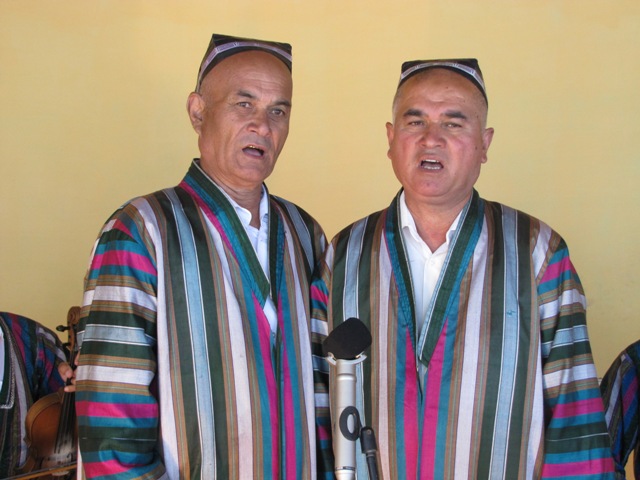
Domain: Performing Arts
Index Number: 02.01.06
Ushshoq (in Arabic – "lovers") is the name of one of the maqoms in maqomat system consisting of twelve maqoms (i.e. duvozdakh maqom) and popular shuba (piece) of Shashmaqom cycle, which was widespread in the Middle Ages. Initially, this maqom represented a lyrical mood.
According to I. Rajabov, the pieces of lyrical and love-related theme, performed by the voices of lovers, are called "Ushshoq". The scholars of medieval times noted that Ushshoq had very ancient roots. As such, it was referred to as the first maqom (or "Um mul-advor", i.e. "Mother of all maqoms"). Ushshoq, in the system of twelve maqoms, was considered as a mode, and its scale coincides with the contemporary Mixolydian mode. Instrumental and vocal pieces created in this mode were called as "Ushshoq" in the past and they evolved based on the modes of maqom called "Ushshoq" and "avaza Moya".
Unfortunately, Ushshoq in the form of independent maqom is not to be found in musical practice of Uzbek and Tajik peoples at present (as it has not been preserved). Though, existence of its instrumental and vocal pieces is observable. Nowadays it is difficult to imagine live sounding of maqom of Ushshoq. Nevertheless, based on shuba of Ushshoq to be found in maqom Rost, which makes up part of Shashmaqom cycle, and based on melodic structure and mode formation, it is possible to find commonalities with maqom of Ushshoq of the system of twelve maqoms. Parts of maqom Rost – Muhammasi Ushshoq (instrumental piece), Talqini Ushshoq, Nasri Ushshoq and Ufari Ushshoq (1st shuba group of vocal section), Savti Ushshoq (2nd shuba group of vocal section) – are considered to be popular shubas in music culture of Uzbekistan. Notably, melodic structure, form and doira usuls in Muhammasi Ushshoq are complex ones, though its intonations and melodic variations are to be found in Muhammases of other maqoms. Vocal pieces of Ushshoq are also very complex in terms of development of melos (which are joyful and expressive). In vocal pieces of maqoms of Buzruk and Rost popular are namuds under the title of "Ushshoq" (for instance in audj (culminations) parts of shuba of Nasri Uzzol and in vocal pieces of Kocha Boghi and Qoshchinor Namud Ushshoq). It is also possible to see shubas of Ushshoq and Namudi Ushshoq in the cycle of Khoresm maqoms. Existence of musical pieces, using shuba of Ushshoq, is observed in Ferghana-Tashkent maqom cycles as well. In addition to the aforementioned it should be noted that the pieces of Ushshoq in maqom (instrumental and vocal ones), Katta ashula and ashula genres are very popular in some regions.
Among people some variations of vocal pieces of Ushshoq became widespread. These were created by Uzbek bastakors and famous singers. These usually bear the names of regions or creators. From among them it is possible to mention Ushshoq of Samarkand or Ushshoq of Khodja Abdulaziz (based on the poem of Zebuniso called "Biyoki zulfi kaju chashmi surmaso injost"), Ushshoq of Tashkent or Ushshoq of Mulla Toychi (based on the poem of Navoi called "Qaro kozum, kelu-mardumlig emdi fan qilghil"), Ushshoq of Khodjent or Ushshoq of Sodirkhon (based on the poem of Jomiy called "Ba yak qarashma Zulaykho vashi dili moro"), and Ushshoq of Kokand, Ushshoqi Rasulqori, Ushshoqi Orifkhon, Ushshoqi Fattokhkhon, Qadimiy Ushshoq, Daromadli Ushshoq, Savti Ushshoq, Zikru Ushshoq, Umrzoq Polvon Ushshoq, etc.
In Ferghana Valley, on the basis of Ushshoq, songs of Katta ashula (Yovvoyi Ushshoq) and instrumental pieces for surnay (Surnay Ushshoqi) became widespread. Vocal versions of Ushshoq differ with their emotionality and peculiar manner of interpretation.
In the XX century a famous bastakor and singer, Fattakhkhon Mamadaliev, created vocal cycle of Ushshoq. In addition, on the basis of Ushshoq, Rasulqori Mamadaliev, a singer from Ferghana Valley, created instrumental and vocal pieces as well as funeral-related songs (marsiya - dedication). In contemporary times composers of Uzbekistan use Ushshoq in operas and music dramas, in instrumental, choral, chamber and vocal genres (for instance, shubas of "Nasri Ushshoq" and "Savti Ushshoq" are used in such operas as "Layli and Majnun" and "Gulsara" (R. Glier and T. Sodiqov), "Heart of the poet" (M. Ashrafi); in music dramas as "Khalima" (G. Zafari), "Muqanna" (Y. Rajabiy and G. Mushel), "Alpomish" (T. Jalilov); in romances as "Navbahor" (D. Soatqulov), "Ey sabo" and "Kormadim" (D. Zokirov), etc.).





